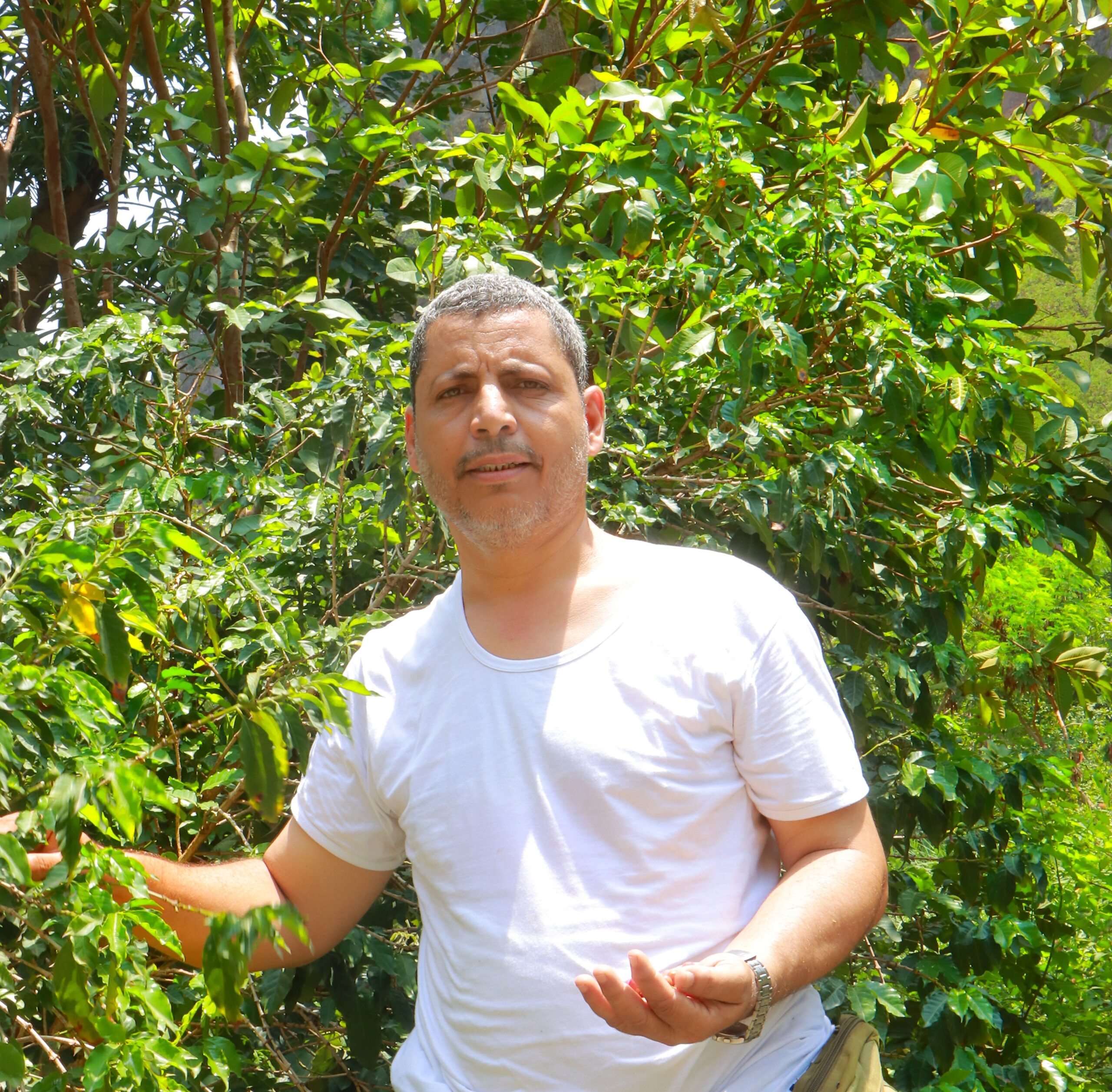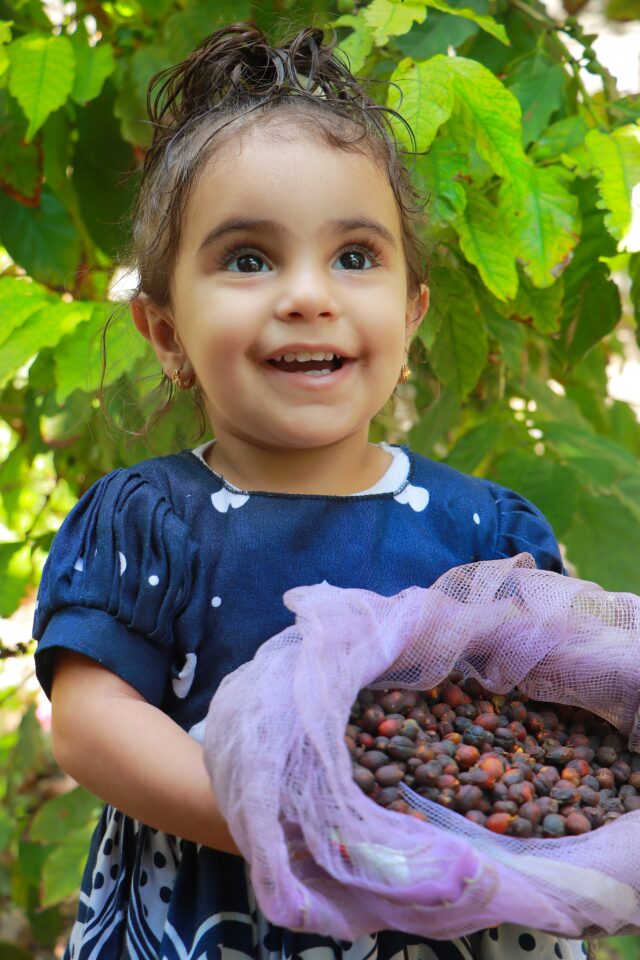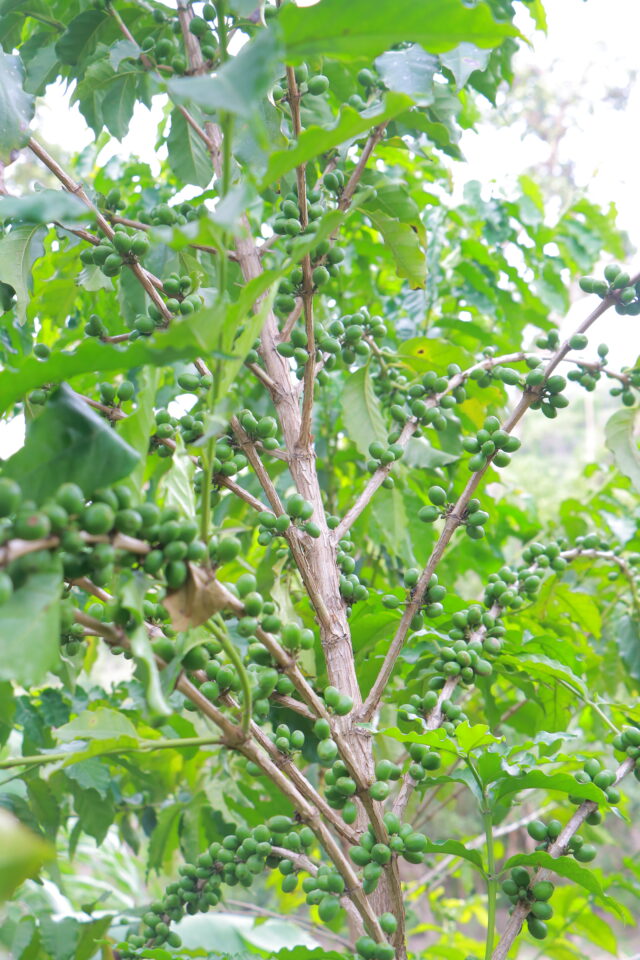
Faisal Abdu Saeed Al-Tahri: The Hero of Al-Udayn and Guardian of Yemeni Coffee
Ibb – August 30, 2025 – (Qahwa World) — In Wadi ‘Annah of Al-Udayn District, where terraced fields rise against the mountain slopes, stands Faisal Abdu Saeed Al-Tahri, known locally as Al-Mahlawi. With determination rooted as deep as his coffee trees, he refuses to let a centuries-old legacy fade. His annual harvest may amount to only 40–50 kilograms, but each bean carries the story of Al-Udayn — a story that has gifted the world a coffee unlike any other.
Despite drought, the absence of modern irrigation, and the high costs of cultivation, Al-Tahri is intent on expansion, not retreat. He plans to plant 500 new seedlings over the next two years. Achieving this goal, however, requires real support, for he lacks the means to build water reservoirs or install irrigation systems. His effort is more than a personal endeavor; it is a model for safeguarding Yemen’s coffee and turning individual resilience into collective success.
Al-Udayn: Valleys Between Mountains and Water
Al-Udayn, in Ibb governorate, is one of Yemen’s most fertile and striking regions. It is home to Wadi Al-Dur and Wadi ‘Annah, two beating hearts of Yemeni coffee. Within these valleys, two distinct coffees thrive:
-
Mountain coffee: grown at higher altitudes, producing small beans with concentrated, complex flavor.
-
Valley coffee: cultivated along streams and under shade trees, softer in taste and smoother on the palate.
This balance of mountain and valley has given Al-Udayn coffee its singular identity. Here, coffee is not merely a crop — it is heritage. Local historians even suggest that the very name Al-Udayn is linked to the stem of the coffee plant.
From Al-Udayn to Mocha: A Journey That Changed History
Al-Udayn was never isolated. It was part of the supply network that sustained the historic port of Mocha. From its valleys, caravans carried beans across rugged terrain to the coast, where they were shipped abroad. In the mid-15th century (around 1450), the first Yemeni coffee left Mocha, and the word Mocha became synonymous with coffee worldwide.
Enduring Testimonies
In 1587, historian Abdul Qadir Al-Jaziri wrote in Umdat al-Safwah fi Hal al-Qahwa:
“As for the origin of coffee, it is from the lands of Yemen — from Aden, Zabid, Sana’a, Mocha, and others.”
In 1573, German physician Leonhard Rauwolf described coffee for Europeans for the first time:
“A black beverage like ink, sold in Yemen, beloved by the people, useful for stomach ailments.”
And in the 17th century, Ottoman traveler Evliya Çelebi observed:
“In the mountains of Ibb and Al-Udayn are coffee farms that dazzle the eyes, and their people live by this precious crop whose fame spread across horizons.”
These accounts are more than documentation; they are a testament that what Al-Tahri cultivates today is part of a heritage that once transformed global history.
Our Visit to Faisal Al-Tahri
Our visit to Faisal Al-Tahri was not just a meeting with a farmer but a glimpse into the living history of Al-Udayn. Through his determination, he mirrors the perseverance of hundreds of farmers who struggle to preserve coffee against drought, neglect, and the spread of competing crops such as qat, which has consumed large areas of farmland.
He embodies the broader story of Yemen itself: a land that gave coffee to the world and continues, through its devoted farmers, to offer an enduring lesson in resilience.
Faisal: The Face of the Present, the Banner of the Future
Al-Tahri’s humble smile never leaves his face, and his care for his centuries-old trees reflects the Yemeni farmer’s deep bond with the land. Coffee for him is no longer just a crop — it is a struggle for survival against drought, lack of support, and the encroachment of other crops threatening Yemen’s agricultural identity.
In Faisal Abdu Saeed Al-Tahri, Al-Udayn is personified: its fertile valleys, its towering mountains, and its historic link to Mocha, the port that shipped the world’s first coffee. He is the present rooted in the past, cultivating for the future a legacy that endures under one name: Al-Udayni Coffee.





